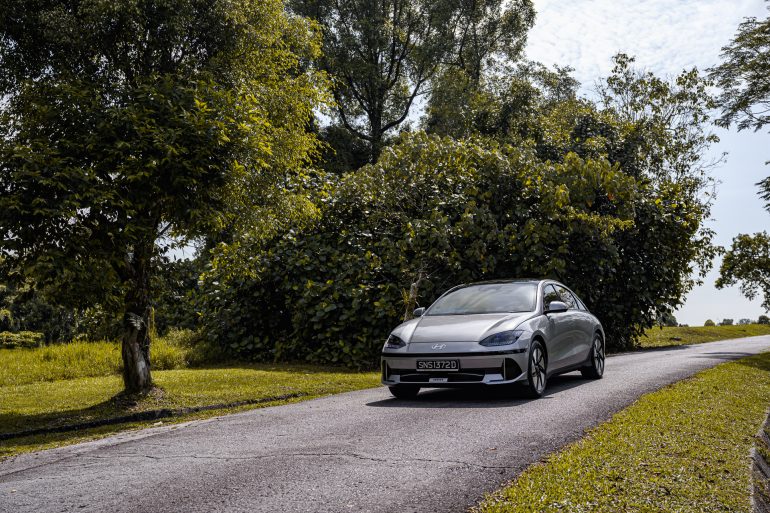The Hyundai Ioniq 6 now comes with a more palatable 53kWh Cat A COE variant, tuned perfectly for Singapore.
The Hyundai Ioniq 6 took the world by storm when it was first launched, subsequently bagging awards left and right from folks around the globe.
The streamliner seemed to have struck a sweet spot amongst journalists and customers alike. And Hyundai Singapore, wanting to expand its lineup of products, have since launched a more COE-friendly Cat A variant.
cat A? is there enough power?
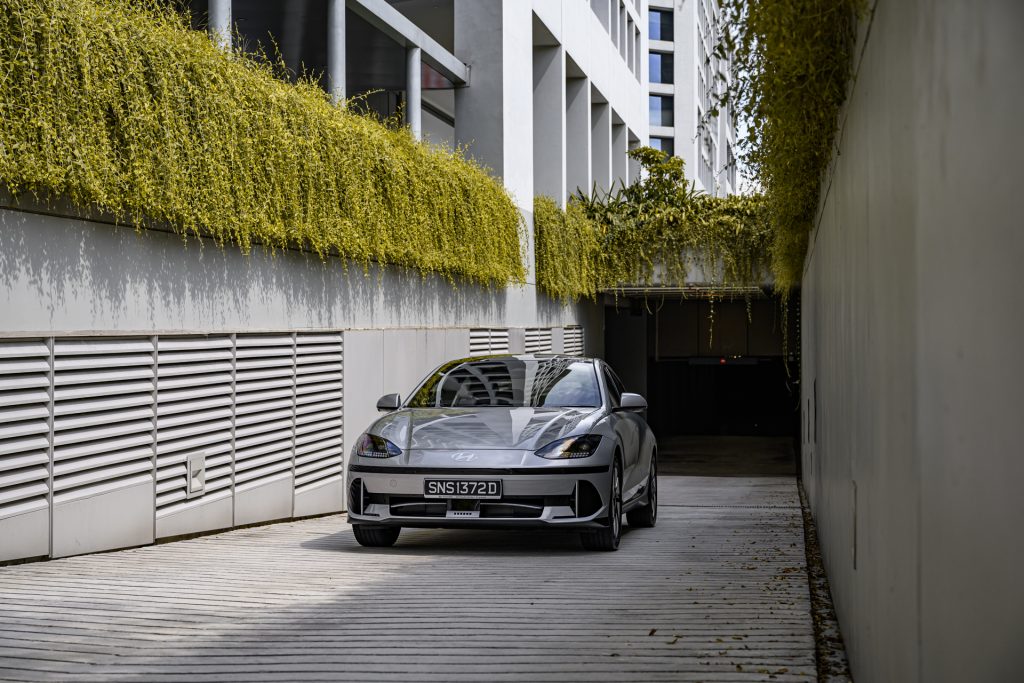
Unlike the Cat B variants, the Cat A Ioniq 6 keeps it simple with just one battery option – a 53kWh cell feeding a rear-mounted motor. You can opt for either the Exclusive (base) or Prestige (premium) variant, but changes only occur features-wise; power for both trims remains the same at 143bhp.
Yes, this is essentially a detune of the Cat B car, but crucially you still receive the same 350Nm of torque.
To no surprise, the Ioniq 6’s century sprint time has taken a bit of a hit, now needing 9.4 seconds. But, out on the streets, you most likely won’t feel that this car is lagging behind traffic. EVs have the distinct advantage of having instant torque at your disposal, and a quick tap of the throttle is still effective in cutting through traffic with ease.
So, if you were someone concerned about power, don’t worry, there’s sufficient grunt for your needs.
but what about handling?
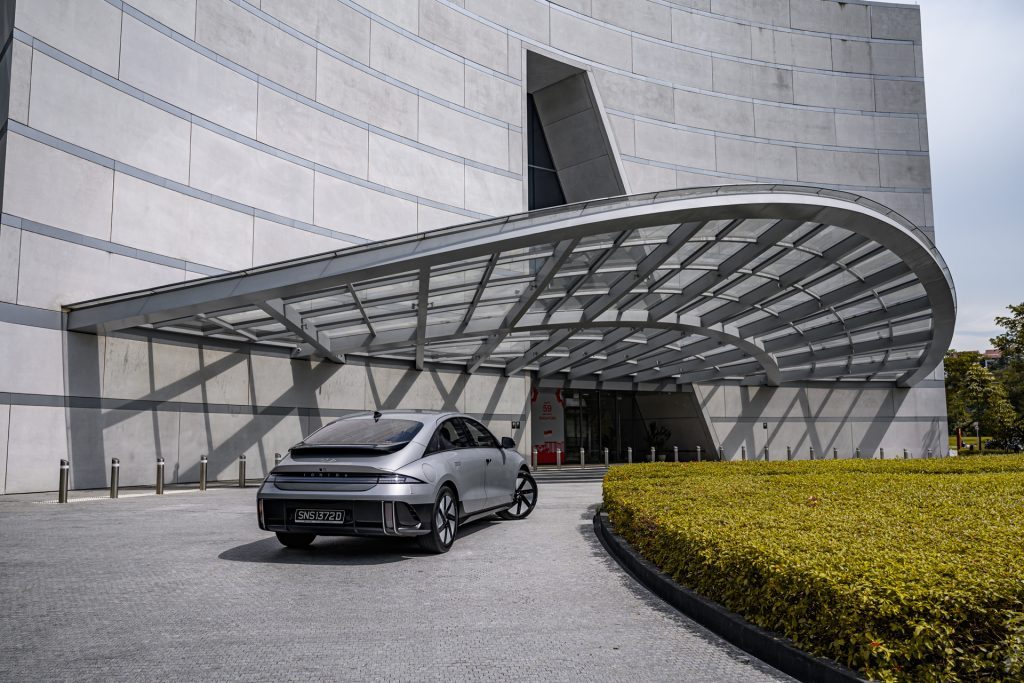
Around town, the Hyundai Ioniq 6 53kWh is a smooth operator. Light steering coupled with the electric motor’s prompt power delivery means it’s got bite at junctions, being nimble when the situation calls for it.
Ride comfort is decent, and highway cruising is a serene affair, but sharper undulations in the road will send jolts into the cabin. A fair trade-off considering the Ioniq 6 has a more confident grip on the road than the Ioniq 5.
It’s comfortable, fairly hushed, and delivers you to your destination in relatively silent efficiency.
my concern is range.

We hear you. That streamlined facade means it can stretch its legs, giving you up to 429km of range.
That is a claimed figure from Hyundai, but even so, the car does come darn well close. My media stint totalled 350km, and there was still 20% left in its battery, so fair play to Hyundai.
And considering it can guzzle up to 350kW from a DC charger, you’ll be out of that charging station in less than 20 minutes.
you still get the same good looks.
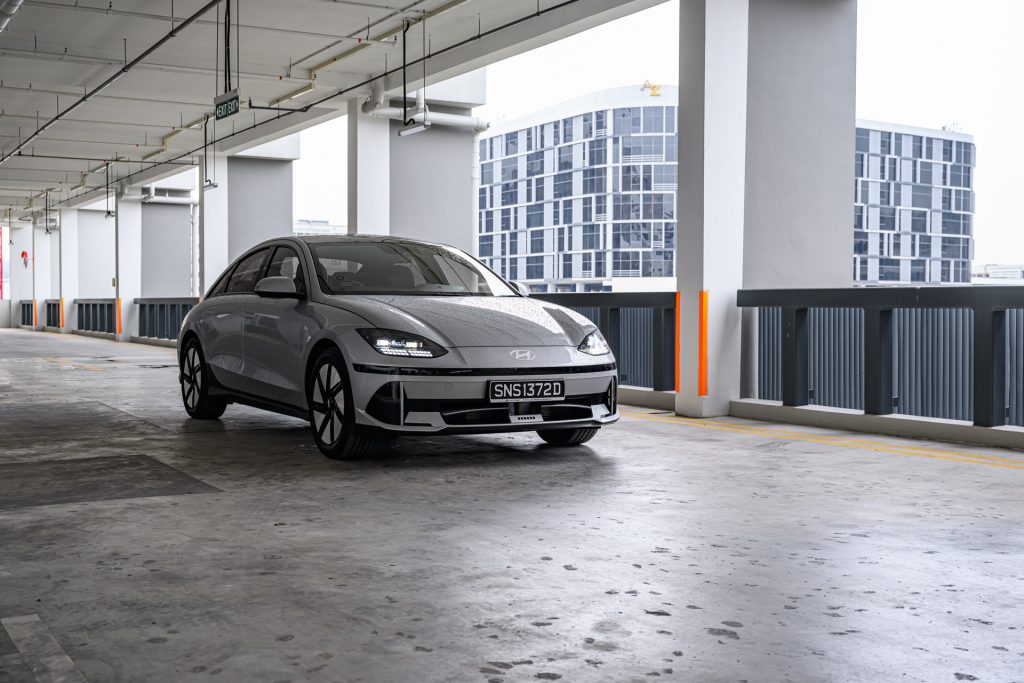
Hyundai’s banking on the Ioniq 6’s eye-catching looks to make it stand out, and it’s a grand entrance indeed.
Now, the aesthetics might trigger a love-it-or-hate-it reaction. But opinions are like rims; everyone’s got their favourite set.
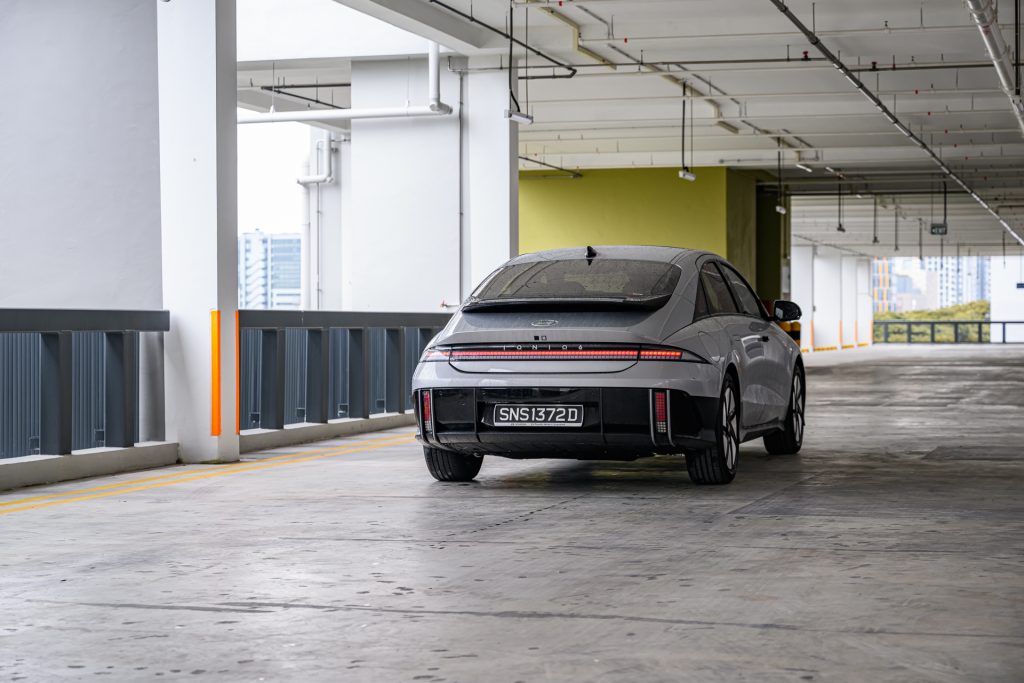
Kudos to the design squad for taking a bold step, fashioning the Ioniq 6 with sleek curves inspired by vintage “streamliners” like the Art Deco Stout Scarab from the 1930s. A modern remaster of the throwback-to-the-80s era of design.
It’s not all looks either; this beauty boasts a drag coefficient of 0.22, designed to milk the most out of every mile. The front bumper flaunts active air flaps that minimise resistance and maximise cooling.
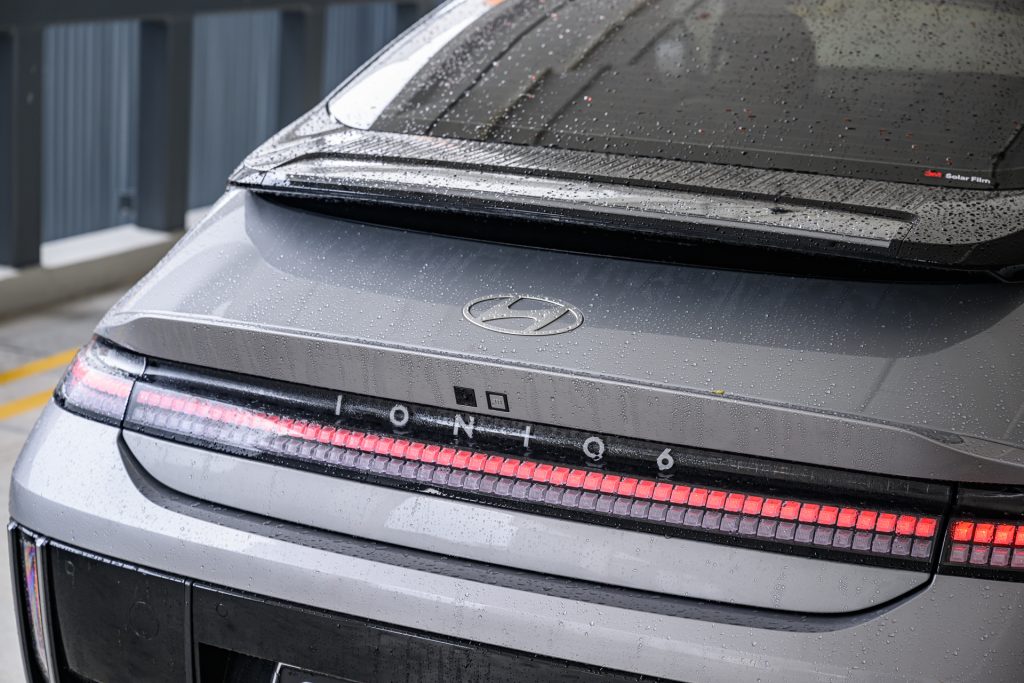

And that rear spoiler array really gives off Saab 900 flashbacks, don’t you think?
and the same spacious cabin.
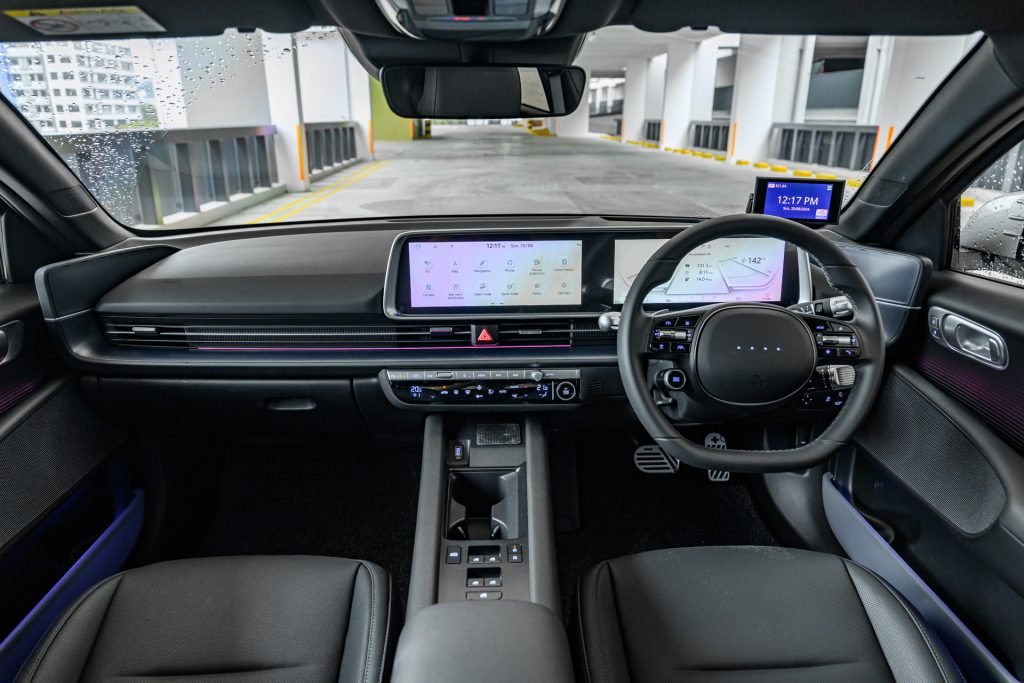
Stepping into the Hyundai Ioniq 6 feels like entering a sleek, minimalist lounge. Comfortable seats (though those headrests are a bit quirky) and an overall vibe of simplicity make this a refined space to be in.
The dual infotainment screens are laid out with some purposeful blank space around them, keeping things easy on the eyes and user-friendly. The drive select stalk is a bit shy, hiding behind the steering wheel, but otherwise everything else is placed just where you’d expect it to be.
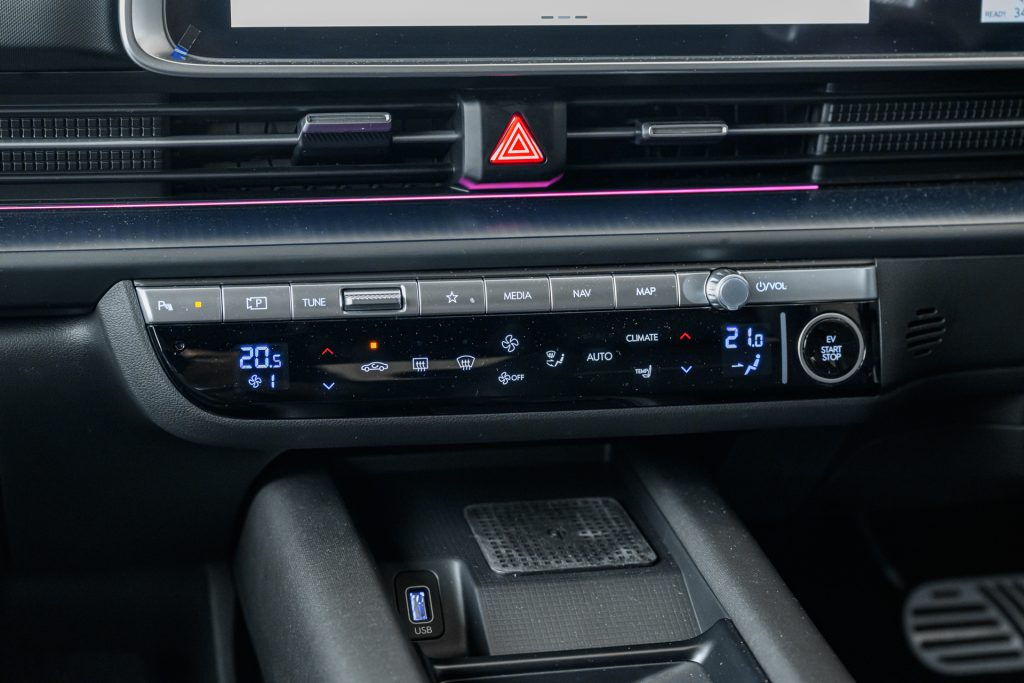
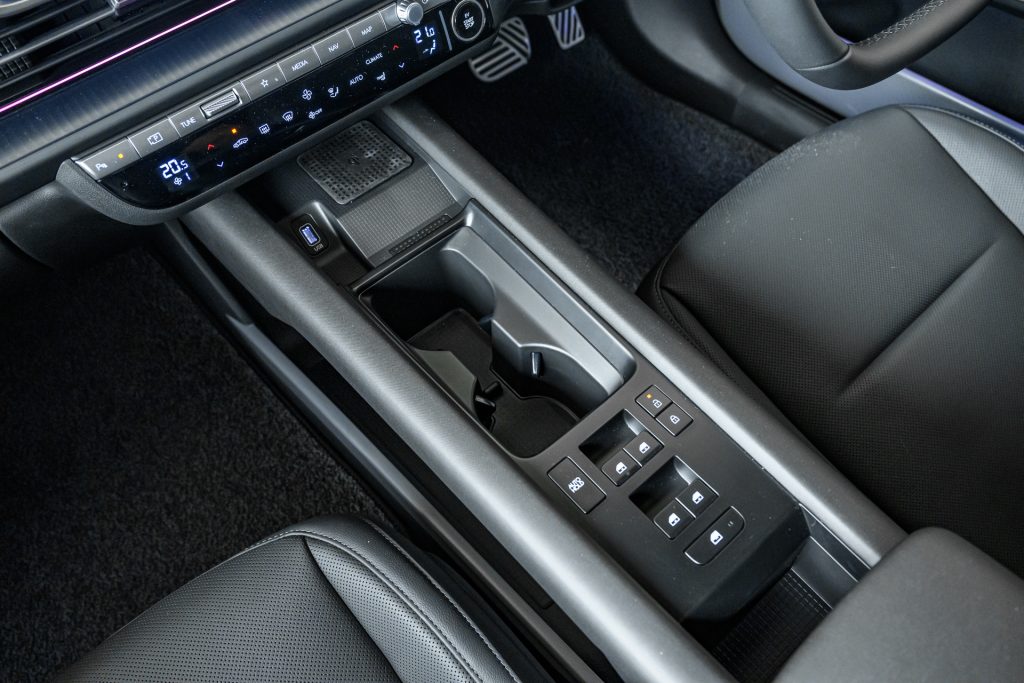
Climate controls have their own dedicated area, and the infotainment system boasts clean graphics and a driver’s display that gives you all the info you need without being overwhelming.
Unfortunately, as of now the Ioniq 6 does not support wireless Apple CarPlay and Android Auto; only the wired version is offered.
The centre console has plenty of storage space, but the door bins are a bit too slim, like trying to fit a big wallet into skinny jeans.
room for the family.
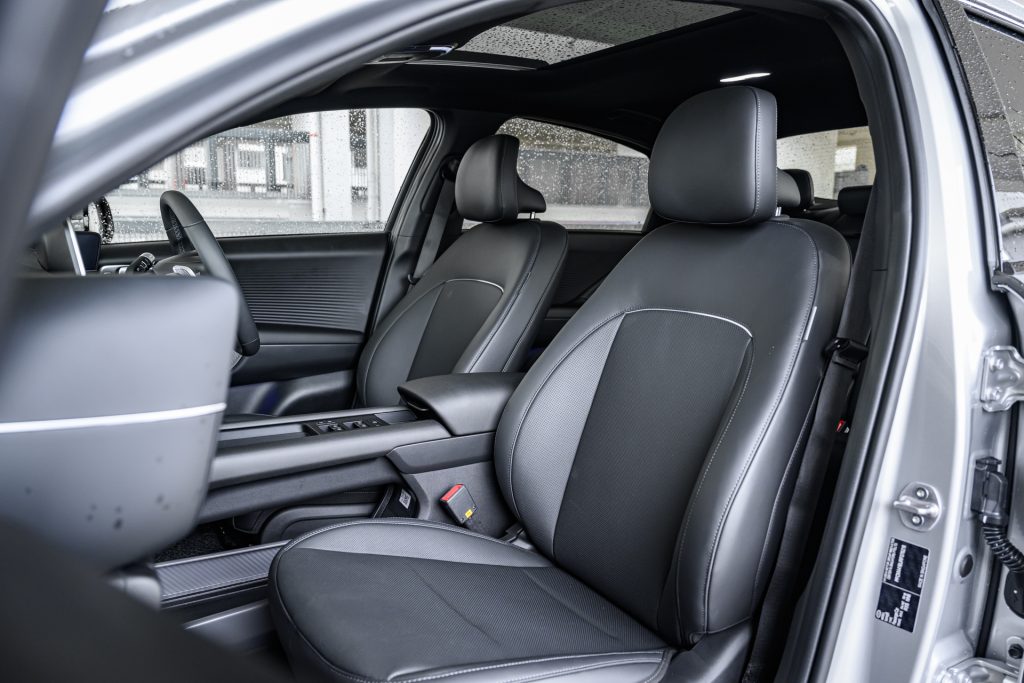
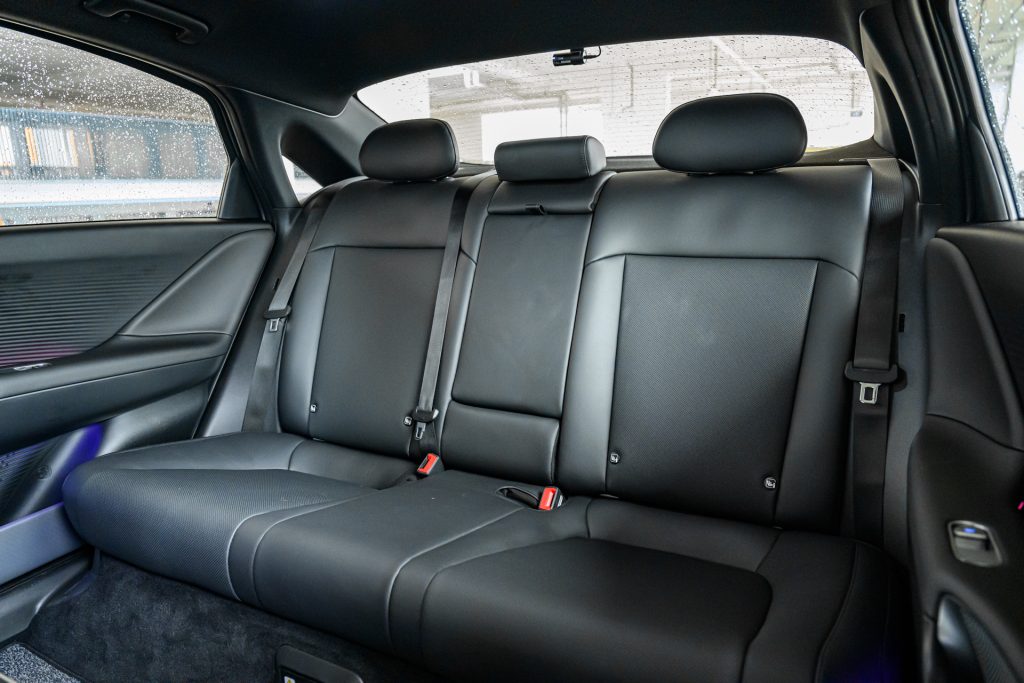
Without a transmission hump, there’s plenty of legroom in the back, which is a nice surprise. You could practically sit on the floor back there!
The only catch is the sloping roofline; taller passengers might feel a bit squeezed, but Hyundai has thoughtfully lowered the seat height to counteract this.
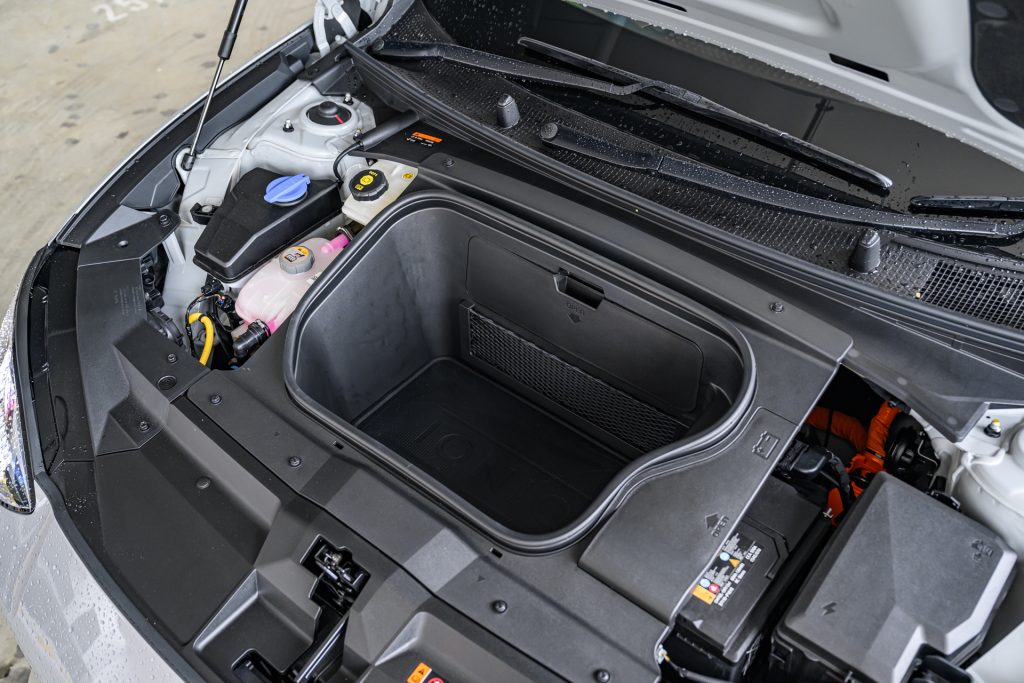
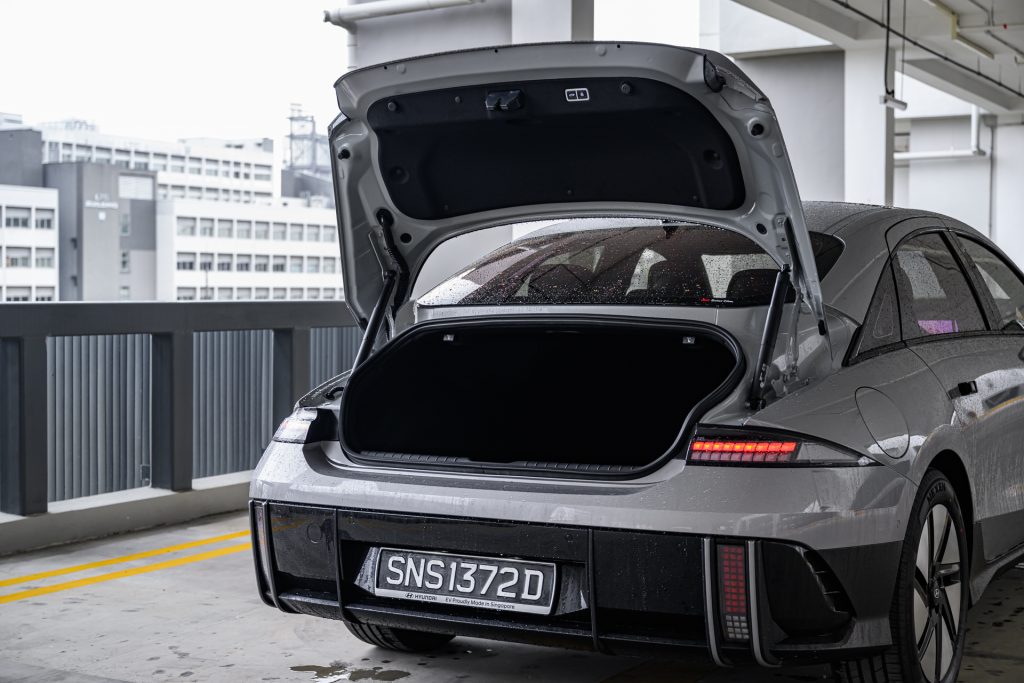
Now, the boot. It’s not exactly class-leading. At 401 litres, it falls short compared to the Polestar 2, Tesla Model 3, and BMW i4, plus the narrow opening limits cargo volume.
But hey, you can fold down the rear seats (60/40 split) to give yourself a bit more space. And there’s also a handy storage area under the bonnet for stashing your charging cables.
all-rounder.

The Cat A Hyundai Ioniq 6 53kWh still retains what you love from its faster (and more expensive) siblings, but packages it in a more palatable package.
In essence, it’s a damn well-rounded package. It doesn’t go too overboard with the tech, yet it’s packed with modern features that make it practical and forward-thinking.
If you’re after something that stands out from the crowd, both in design and performance, the Ioniq 6 is a solid contender.
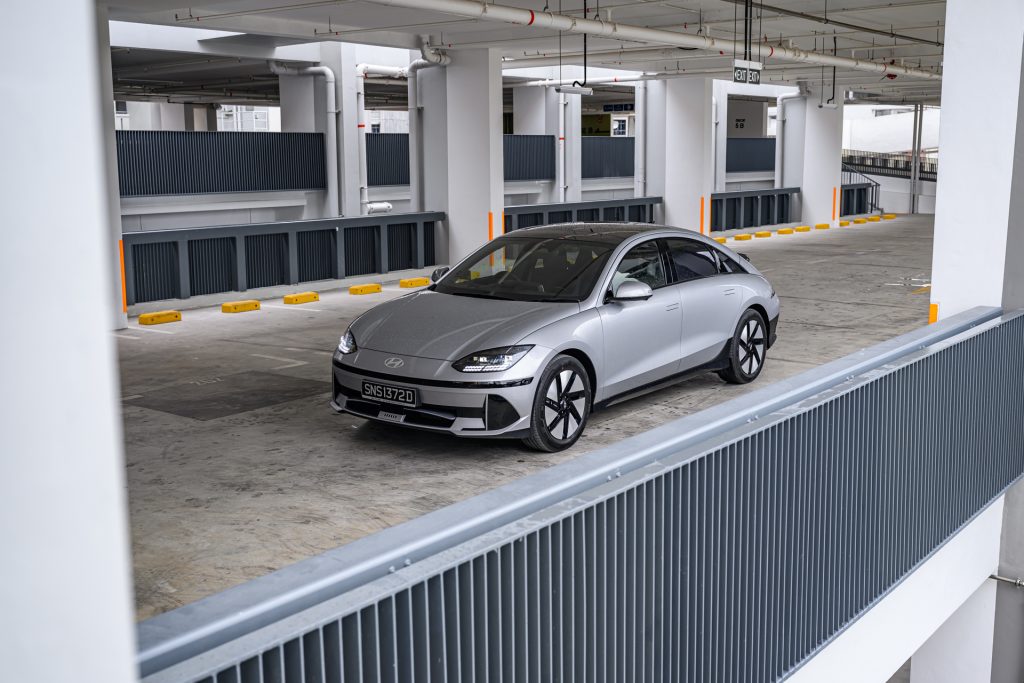
technical specifications.
Hyundai Ioniq 6 Electric (Prestige 53kWh)
Engine: Single Electric Motor
Drivetrain: Rear-Wheel Drive
Power: 107 kW (143 bhp)
Torque: 350 Nm
Gearbox: Single-Speed (A)
0-100km/h: 9.4 seconds (claimed)
Top Speed: 185 km/h
Battery Capacity: 53 kWh
Drive Range: 519 km (claimed)
Energy Consumption: 7.2 km/kWh (claimed)
Price: S$201,150 with COE (accurate at the time of this article)
Contact: Hyundai Singapore
Photo Credits: Sean Loo (@auto.driven)
Check out more green rides here, or check out our latest videos on Ignition Labs TV and on TikTok!

